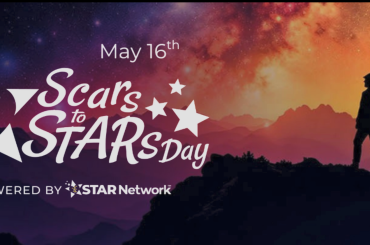You can understand MAT medications beyond the jargon.
Opioid addiction treatment uses plenty ten-pound words. We don’t always know what they mean, even while we hear or read people explain them. What does the terminology all mean?
When we say “terminology,” we’re talking about the subjects of our last few opioid articles. We’ve reviewed MAT and its scientific basis, MAT and its unfounded stigma and MAT through its different medications. Now, we’ll explain MAT through the little medical-terms that we’ve used so far.
Opioid Treatment Jargon Has Everyday Meaning
Here are a few of the most pressing terms you should know, if you need opioid addiction treatment for yourself or others.
“Medically-assisted”
Here are the first two letters of MAT which explain how MAT works: medication is involved, but only as an assistance. Like we’ve mentioned before, MAT also involves therapies which treat the mental and emotional states that bring opioid addiction in the first place. Medication is (crucial) assistance, but not the entire “cure.”
One more thing – the exact term can change depending on the organization. For instance, the Substance Abuse and Mental Health Services Administration (SAMHSA) uses medication-assisted treatment. Meanwhile, the addiction-prevention nonprofit Shatterproof employs Medication for Addiction Treatment. These differences might seem unimportant , but they do actually reflect the growing research around MAT (along with the importance which doctors and counselors assign to it). You might help yourself out by keeping an eye on this conversation opioid addiction treatment keeps developing.
“SAMHSA”
Speaking of SAMHSA: this is the shorthand acronym for the Substance Abuse and Mental Health Services Administration, the federal organization whose mission is to “reduce the impact of substance abuse and mental illness on America’s communities.” SAMHSA provides substance-addiction research, policy advisories and training for addiction professionals. However, we often mention it when discussing MAT because the organization gathers much of the data and practices for opioid addiction treatment (along with updates on the opioid crisis). In fact, SAMHSA gives out the certifications for methadone prescriptions for opioid – which plays a crucial part for opioid treatment access.
“Opioid Treatment Center”
This term refers to the physical setting where you receive MAT (both the medications and counseling). Any legitimate opioid treatment center will have both medical staff and a federal license to prescribe opioid treatment medications. The Buprenorphine Doctors website describes them as the homes of opioid recovery resources, where doctors can design treatment programs for your needs. Opioid treatment centers can give you both inpatient residential and outpatient opioid treatments.
“Sublingual Medication”
Moving onto the actual methods of opioid addiction treatment, we find a few jargon-like medical terms, like sublingual. This adjective only means “administered under the tongue,” where you place a MAT pill or film and let it dissolve. Why would you do this? One university study suggests that sublingual use helps the medicines act more quickly than swallowing them. And if you need quick opioid withdrawal relief, placing buprenorphine or methadone under your tongue might help you more effectively.
“MAT Pills, Tablets and Film”
These three terms just refer to the different forms of MAT medications – the literal physical objects which you take to receive their chemical assistance. A pill is, well, a pill like the one you’re thinking of. A tablet is a pill by another name, still taken orally on a careful medical schedule of doses. A film is another oral medication, but rather than taking a pill, you receive a thin, flat square of medicine for the inside of your cheek. Belbuca (a buprenorphine film) is one example of MAT medications as a film.
Don’t stress too much over these differences. That job belongs to addiction doctors and counselors, who should prescribe you the MAT medications which you need.
So What Now?
We’d invite you to learn more about opioid addiction medications, since they help those suffering from opioid addiction. Understanding the treatment is one way to support those people who need it for opioid recovery. Here at In The Rooms we have the educational content you might need, not to mention the online recovery meetings to ground you in recovery community. Why not sign up for free today, so that we can learn how to best serve your addiction recovery?







